How Doncaster dad’s own heroic Christian Eriksen experience led to him passing on vital CPR knowledge to others
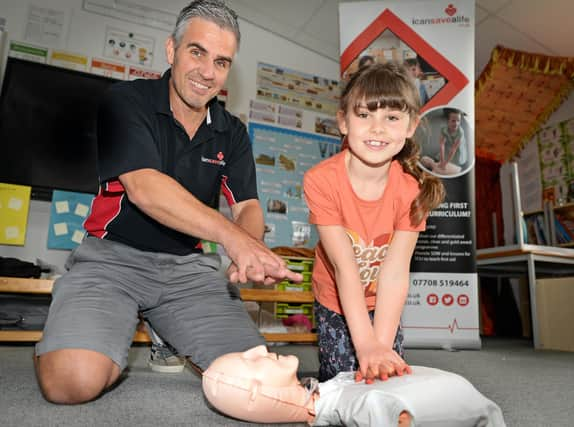

Horrifying for the perilous situation Eriksen found himself in and the raw emotion of his team mates and wife as they attempted to process what was happening.
Inspiring for the rapid response, led by Denmark captain Simon Kjær who cleared his airway and began CPR before medical staff arrived in a collective effort that saved the 29-year-old’s life.
For dad-of-two Sam Clark, the scenes were all too familiar.
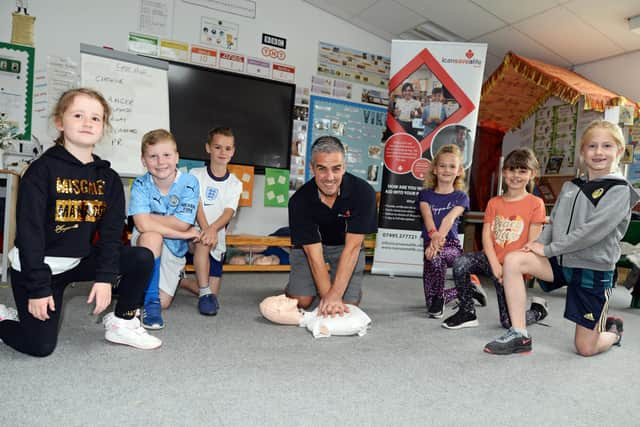

Advertisement
Hide AdAdvertisement
Hide AdSeventeen years ago, as a PE teacher at Balby Carr Community School, he found himself in Kjær’s position as he attempted to save the life of a colleague.
It was an incident that understandably has stuck with the 44-year-old ever since, and played a major role in his career change to teach the techniques which kept his fellow teacher Dave Martin alive.
“I was in my first year of teaching at Balby Carr and I worked with Dave, a big Welsh bloke, a very fit rugby player,” Sam said.
“One day, out of the blue and during a lesson, his heart stopped working.
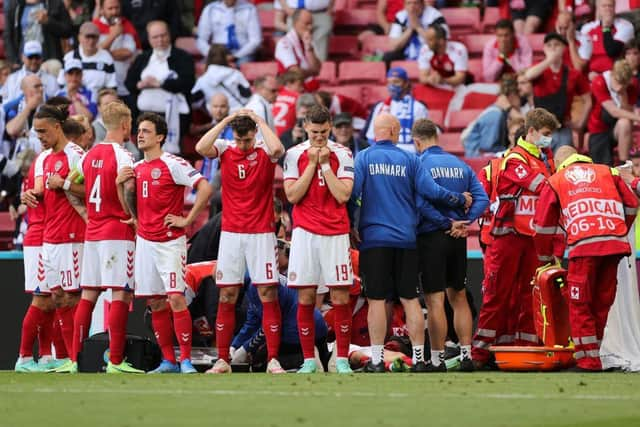

Advertisement
Hide AdAdvertisement
Hide Ad“There was myself and another lady Ann Ormshaw who was called to his aid.
“We just did the training on what we’d been taught over the years. We started first aid and CPR.
“Back then there were no defibrillators on street corners or anything like that, so we were going for about 20 minutes before a paramedic arrived.
“We kept his heart pumping blood and taking oxygen to the brain. When the ambulance arrived they were able to shock him and they got him back on the second time.
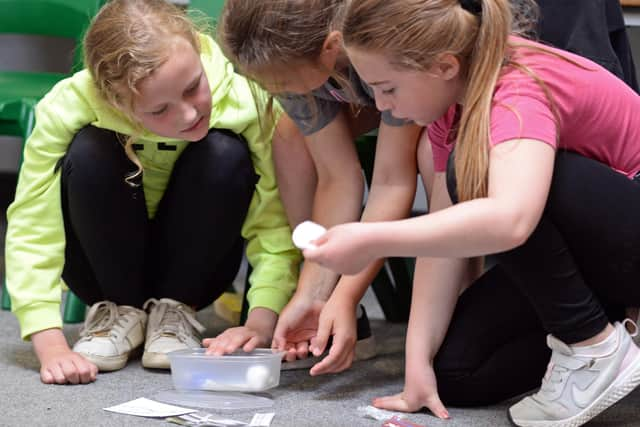

Advertisement
Hide AdAdvertisement
Hide Ad“They took him to the hospital and he was in a coma for a while. Because he’d been out for 20 minutes he had a lot of memory loss and a lot of long term issues so he was in the Northern General for months.
“He slowly recovered and he’s fit and well today with two kids and all is good.
“He still sends me a text message every year on the date it happened.”
Dave would return to teaching and rugby coaching as well as going on to name one of his children after Sam in honour of his heroics.
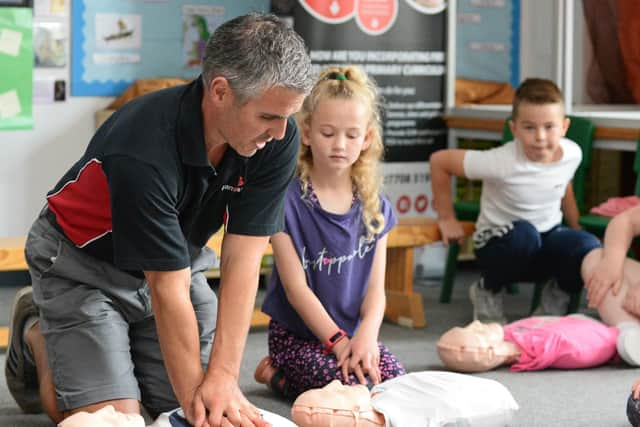

Advertisement
Hide AdAdvertisement
Hide AdBut Sam himself does not see his actions that way. Instead, he believes he went into automatic mode with his first aid training coming to the fore.
“It was panic stations and you’d panic without doubt, but I found that because I’d had a lot of training, I was able to switch to automatic mode,” he said.
“I checked for breathing, I checked the airway, I tilted his head back. If someone is not breathing I then just start on the heart as quickly as possible. The longer I don’t do chest compressions, the less chance the brain has of receiving oxygen.
“It was just a case of doing what I’d been taught.
“It was nothing major, nothing fantastic, it was just doing something I’ve been taught.
Advertisement
Hide AdAdvertisement
Hide Ad“That is why I now find it quite simple. The concept is simple but people are scared, especially adults, to do that.
“It gave me a passion for first aid. The more I can help, the more I can train people, the better it is.
“It was the most harrowing moment I’d ever experienced and if I can help somebody do that in that very difficult situation, they’re going to be in a better place for it.
“Fortunately Dave survived but I know there are cases where that does not happen.
Advertisement
Hide AdAdvertisement
Hide Ad“If I can prepare someone to deal with it the best they possibly can or know how to do it to be able to tell someone else, it’s a positive thing all round.”
A little more than two years ago, after admitting he had fallen out of love with teaching, Sam began the process of setting up his business I Can Save A Life, alongside colleague Wayne Pickersgill.
The pair offer first aid workshops for employers, coaches and families but it is work in schools that Sam enjoys the most.
As he meets with the Free Press, Sam is having a short break after sessions with classes at Carr Lodge Academy in Balby, where the two daughters of he and teacher wife Katie are pupils.
Advertisement
Hide AdAdvertisement
Hide AdAfter years of campaigning by a variety of organisations, first aid is now on the curriculum for schools and Sam believes youngsters are the most receptive learners.
“We like to teach it so young people are active and enjoying it and having fun,” he said.
“We’ve found if they’re having fun, they’re learning more.
“Myself and my colleague Wayne try to talk as little as possible, use more activities and enforce the key points through those activities.
“Because of that, schools like what we do, it keeps the kids active, they enjoy it and talk about it and they want us back.
Advertisement
Hide AdAdvertisement
Hide Ad“Because of the active sessions, the kids really respond. They’re keen to give their feedback and talk about their own experiences of what they’ve seen and learned.
“It passes the knowledge around the room where you might not talk about a broken bone or a grandma falling downstairs. Sharing those experiences, it helps people understand and helps them know what to do in a situation.
“It’s now on the curriculum. It has been for years in Scandinavia which is why they have a much better survival rate for dealing with cardiac arrests outside of hospital.”
When Eriksen collapsed, the BBC were heavily criticised for continuing to broadcast the scene as the midfielder received medical attention.
Advertisement
Hide AdAdvertisement
Hide AdBut while admitting it was tough to watch personally, Sam believes showing the reality of the situation was a positive, particularly because the actions of those who attended to Eriksen saved his life.
“I don’t know whether it’s after having children of my own, but any time I see anything like that I start to get emotional and get the butterflies,” he said.
“It was harrowing but you saw how quickly the team responded. People said it shouldn’t have been shown but they were giving CPR and I think it was a good thing it was shown, especially because he has come through.
“That is what you need to do so the more people that see that, the more lives can be saved.
Advertisement
Hide AdAdvertisement
Hide Ad“The fact it was a couple of minutes of CPR and the defibrillator was straight there, they were able to shock him.
“You saw that at the time and he came around before he left the pitch so you saw how important speed was in people’s reactions.
“Since then I think the importance of knowledge of CPR has become more apparent in society.
“People are keen to do first aid and schools are wanting life skills and activities for young people to experience.”